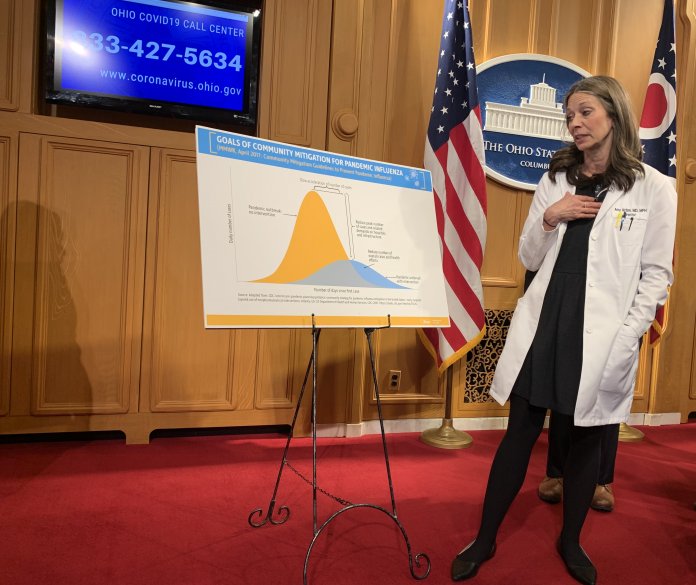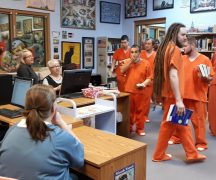In a public health crisis, nothing is more vital for our citizenry than honest and accurate information.
Most Americans are getting that information during this COVID-19 pandemic — from health experts, media outlets and government officials.
This is what makes reports of Chinese government censorship during this crisis even more jarring. The New York Times and other outlets have reported efforts from the government to cover-up a “fumbled response” to the novel coronavirus outbreak, and control what the public learns going forward.
Things are different in the United States, which is governed by a different set of principles. Our First Amendment guarantees freedom of the press. Under Ohio’s “Sunshine Laws,”government meetings must be held in public venues, and records must be kept and made available to all people.
Each year, journalists recognize “Sunshine Week” as a way to celebrate these freedoms and inform the public of their rights as citizens. Meetings and records are not just meant for us reporters — they are accessible to everyone.
We are nearing the end of this year’s Sunshine Week (March 15-21). The usual attention given to Sunshine Week has been, understandably, overshadowed by the ongoing health crisis. Still, our leaders’ actions during this crisis showcase the need for open government now more than ever.
Ohioans have witnessed plenty of examples of the value in having an open government. We have also seen examples in other states and at the federal government where that value is not so closely held.
Gov. Mike DeWine and Ohio Department of Health Director Amy Acton have led daily press conferences for several weeks. At these events, they have been transparent about the latest COVID-19 statistics. DeWine has announced a wide array of state directives, always providing details of his reasoning and acknowledging the ramifications they will have on Ohioans.
Most notably, the state officials have always opened the floor to questions from reporters. These lengthy Q&A sessions even allow some journalists to ask questions posed directly by their own readers and viewers.
DeWine and others have also kept citizens informed via social media and the state website.
Sure, things haven’t always gone perfectly. One example: when Ohio still believed the primary election would take place, there was a growing list of polling places set to relocate due to the virus. The Ohio Secretary of State’s Office tried to keep a list for voters, but it was updated only sporadically. Even the final list presented (before the election was postponed) did not include every location that was actually set to move.
And, speaking of election mayhem: the radio silence, poor communication and mistaken assumptions by leaders throughout Monday caused a whole day of confusion.
In fairness to those involved, this is a difficult, unprecedented time. The situation is developing very rapidly and there are bound to be some issues. By and large, though, Ohio has been far better than other examples.
Compare DeWine and Acton’s responses to that of Gov. Jim Justice in neighboring West Virginia. On Monday afternoon, with community spread already confirmed in Ohio and the number of positive cases rising precipitously, Justice remained comically behind.
“If you want to go to Bob Evans and eat, go to Bob Evans and eat,” Justice said, even after federal experts were urging Americans to avoid public gatherings of more than 10 people.
Justice had to eat his own words, backtracking and eventually shutting down all restaurants in the state by the following evening.
Mixed messages like that are not helpful.
Or, consider the tone-deaf governor of Oklahoma, who tweeted a picture of his family out to eat at a crowded restaurant. “It’s packed tonight!,” his now-deleted post read. Republican Sen. John Cornyn of Texas posted a joking photo of him drinking a Corona beer. Republican Congressman Matt Gaetz of Florida showed up to the House floor wearing a gas mask, in an apparent effort to mock the seriousness of the virus. Irony struck when Gaetz had to self-quarantine after having come in contact with someone that had tested positive.
Americans take their cues from authority. This is a time to be serious. Acton has said the evidence of community spread points to more than 100,000 Ohioans likely already having the virus.
Ohio’s leaders have been more proactive, more transparent, and have taken COVID-19 more seriously than almost anyone else with authority in America.
That is good government, and that is the heart of Sunshine Week.





